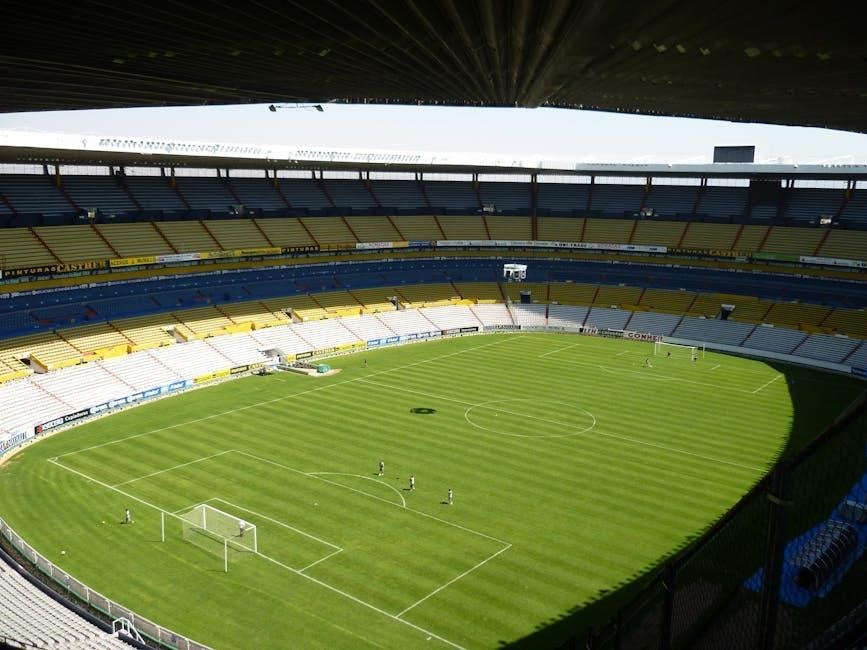
The history of Olympic football began with unofficial matches in 1896, and the first official tournament was held in 1908, with eleven teams participating in the 1912 Olympics, as stated on various websites today always.
Early Beginnings of Olympic Football
The early beginnings of Olympic football are shrouded in mystery, with some reports suggesting that the first football match was played at the 1896 Olympics in Athens, Greece, although this is not officially recognized by the International Olympic Committee. According to various sources, including historical documents and archived articles, the first recorded football match at the Olympics was held in 1900, with a team of British athletes competing against a team of French athletes. The match was played as an exhibition event, with the British team emerging victorious. The early days of Olympic football were marked by a lack of organization and standardization, with different countries and teams competing under different rules and regulations. Despite these challenges, the sport continued to gain popularity, with more countries and teams participating in the Olympic football tournament in the years that followed. The history of Olympic football is a fascinating story that spans over a century, with many interesting events and notable matches that have shaped the sport into what it is today.

Development of Olympic Football
Olympic football developed rapidly with the involvement of FIFA, introducing new rules and regulations to standardize the sport globally always online.

First Official Olympic Football Tournament
The first official Olympic football tournament was held in 1908, with six teams participating from Europe and the United Kingdom, as stated on various websites and historical records. This tournament marked the beginning of Olympic football as we know it today, with a formal competition and standardized rules. The tournament was won by Great Britain, who defeated Denmark 2-0 in the final. The success of this tournament led to the inclusion of football in the 1912 Olympics, which featured eleven teams from Europe and South America. The International Olympic Committee and Fédération Internationale de Football Association worked together to establish the rules and regulations for the tournament, ensuring a fair and competitive competition. The first official Olympic football tournament set the stage for the growth and development of the sport, with more teams and countries participating in subsequent Olympics. The tournament’s impact on the sport of football was significant, leading to increased popularity and recognition worldwide.

Evolution of Olympic Football
Olympic football has undergone significant changes, with the introduction of new rules and regulations over the years, shaping the sport into what it is today, with a strong focus on fair play and sportsmanship always.
Changes in Olympic Football Rules and Regulations
The rules and regulations of Olympic football have undergone significant changes over the years, with the introduction of new laws and amendments to existing ones. The Fédération Internationale de Football Association (FIFA) has played a crucial role in shaping the rules of the game, with the aim of promoting fair play and sportsmanship. One of the key changes was the introduction of the offside rule, which has been amended several times to clarify its application. Additionally, the use of technology has been introduced to aid referees in making accurate decisions, such as the use of video assistant referees (VARs). The rules regarding player eligibility, team composition, and tournament format have also been modified to ensure a level playing field for all participating teams. These changes have contributed to the evolution of Olympic football, making it a more exciting and competitive sport. The rules and regulations are regularly reviewed and updated to ensure that the game remains fair, enjoyable, and safe for all participants. The Olympic football tournament has become a premier international competition, with the best teams and players from around the world competing for the coveted gold medal.
Notable Moments in Olympic Football History
Olympic football has witnessed numerous memorable moments that have shaped the history of the sport. One such moment was the thrilling final between Spain and Brazil in the 1992 Olympics, where Spain emerged victorious. The 1912 Olympics saw the participation of eleven teams, marking a significant milestone in the growth of the tournament. The introduction of the Olympic football tournament for women’s teams in 1996 added a new dimension to the competition. The Olympic Games have also provided a platform for talented players to showcase their skills, with many going on to achieve greatness in their careers. The record-breaking performances of certain teams and players have become an integral part of Olympic football history. These notable moments have contributed to the rich legacy of Olympic football, making it an exciting and unpredictable sport. The history of Olympic football is filled with stories of triumph, defeat, and perseverance, inspiring generations of football enthusiasts around the world. The Olympic Games continue to be a premier stage for football teams to compete and make their mark on the sport.

Impact of Olympic Football on the Sport
The Olympic football tournament has had a profound impact on the sport, with many teams and players benefiting from the exposure and experience gained from participating in the Games. The tournament has served as a launching pad for the careers of many talented players, providing them with a platform to showcase their skills to a global audience. The Olympic Games have also played a significant role in promoting the development of football in various countries, with many nations investing in their football infrastructure and youth development programs in order to compete at the highest level. The Olympic football tournament has also contributed to the growth of women’s football, with the introduction of the women’s tournament in 1996 helping to increase participation and interest in the sport; The global reach of the Olympic Games has helped to popularize football, making it one of the most widely watched and played sports in the world. The impact of Olympic football can be seen in the increased participation and investment in the sport, as well as the growth of new markets and fan bases. Overall, the Olympic football tournament has had a lasting impact on the sport, shaping its development and growth over the years.


